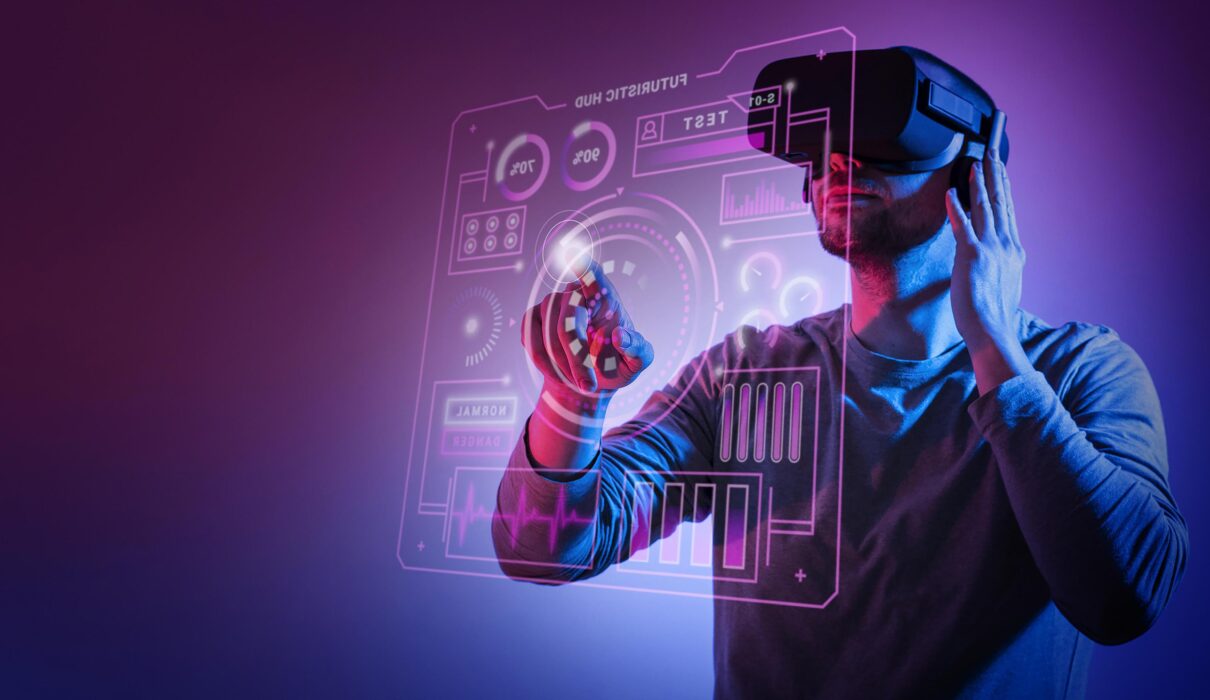Technology is evolving at an unprecedented pace, and 2025 is proving to be a pivotal year. From smarter AI to immersive virtual experiences, the innovations emerging today are reshaping how we live, work, and connect.
Here’s a look at the most influential tech trends of 2025 and how they’re redefining our digital future.

1. Generative AI Becomes Essential
Generative AI is no longer just a buzzword it’s becoming a critical tool across industries. In 2025, AI models are not only creating content but also writing code, generating business strategies, designing products, and assisting in real-time collaboration.
Tools like ChatGPT and others are now integrated into everything from customer service to software development. As businesses adopt these systems, focus is shifting to responsible use ensuring transparency, reducing bias, and maintaining human oversight.
2. Quantum Computing Reaches New Milestones
Quantum computing is moving beyond the lab. In 2025, major progress in hardware stability and error correction has brought us closer to real-world applications. While still in its early stages, quantum technology is beginning to impact industries like pharmaceuticals, finance, and logistics by solving complex problems that classical computers can’t handle efficiently.
This isn’t mainstream just yet but it’s closer than ever.
3. AI-Driven Healthcare Goes Mainstream
Healthcare is undergoing a digital transformation, powered by AI and real-time data. Personalized medicine has taken a leap forward in 2025, as algorithms trained on genomic and biometric data enable treatments tailored to individual patients.
Wearables are also evolving. Beyond tracking steps or heart rate, they now monitor sleep patterns, stress levels, and early signs of illness—allowing for preventive care instead of reactive treatment.
4. Spatial Computing and Mixed Reality Take Off
With devices like Apple Vision Pro and advanced AR glasses hitting the market, spatial computing is moving into the mainstream. These technologies blend the physical and digital worlds, enabling immersive experiences for work, education, and entertainment.
In 2025, virtual collaboration spaces are replacing traditional video calls, letting users meet and interact in shared 3D environments. It’s not just futuristic—it’s functional and already happening.
5. Green Tech Becomes the Default
As climate urgency grows, so does the need for sustainable innovation. In 2025, technologies like carbon capture, smart grids, and solid-state batteries are being widely adopted. Clean energy is no longer an ideal; it’s a necessity.
Electric vehicles are smarter, with bi-directional charging that lets them supply energy back to the grid. Meanwhile, AI is optimizing energy usage in cities, making sustainability both scalable and cost-effective.
6. Web3 and the Rise of Digital Ownership
While the crypto hype has quieted, the foundational ideas of Web3 are gaining traction. In 2025, decentralized platforms are offering more secure, transparent, and user-controlled experiences especially in social media, finance, and identity management.
The shift toward data ownership and digital sovereignty is subtle but powerful. It signals a long-term transformation in how we interact online.
7. Robotics and Automation Become Everyday Tools
Robots are no longer confined to factory floors. In 2025, AI-powered machines are delivering groceries, assisting in surgeries, and tending to crops. Autonomous vehicles are entering regulated markets, and cobots (collaborative robots) are working safely alongside humans in warehouses and manufacturing plants.
We’re seeing machines not replace workers, but augment their capabilities—creating more efficient, responsive systems.
Looking Ahead
The tech landscape of 2025 is not defined by a single breakthrough—but by the convergence of many. Artificial intelligence, immersive reality, quantum computing, and sustainable technologies are coming together to reshape our world.
The challenge now isn’t just to adopt these tools, but to guide their development responsibly—with ethics, equity, and impact in mind.
The future isn’t coming. It’s already here.

